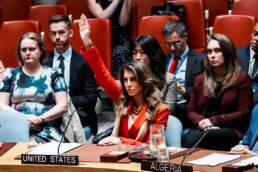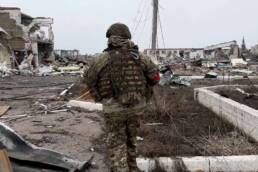المصادر:
نُشرت هذه الدراسة في مجلة المستقبل العربي العدد 500 في تشرين الأول/أكتوبر 2020.
صلاح سالم زرنوقة: أستاذ العلوم السياسية – مصر.
[1] انظر في ذلك:
Amaima Yawar Khan [et al.], «Impact of Mass Media in Pakistan on Social,
Ethical and Economic Grounds,» International Journal of Economic Research, vol. 4, no. 3 (2013) pp. 3 and 17.
[2] في التفاصيل:
Elisabeth Noelle-Neumann, «Return to the Concept of Powerful Mass Media,»
in: H. Eguchi and K. Sata, Studies of Broadcasting: An International Annual of Broadcasting Science (Tokyo: Nippon Hoso Kyokai, 1973) pp. 102-123, and Arthur Asa Berger, Essentials of Mass Communication Theory (Thousand Oaks, CA: Sage Publications, 1995) p. 12.
[3] لمزيد من التفاصيل:
Clay Shirky, «The Political Power of Social Media,» Foreign Affairs, vol. 90,
- 1 (2011) pp. 28-40.
[4] انظر في ذلك:
Nick Pernisco, «Social Media: Impact and Implications in Society,» Student
Journal for Media Literacy Education, vol. 1, no. 1 (2010), pp. 3-16.
[5] انظر:
Abdul – Rahman O. Olayiwola, «Media and Security in Nigeria,» European Journal
of Business and Social Sciences, vol. 2, no. 9 (December 2013) pp. 22-23.
[6] لمزيد من التفاصيل:
Rajesh Kumar, «Mass Media Can Effect Socio-Political Changes: An
Analysis,» Global Media Journal (Indian Edition) (June 2011) pp. 1-15.
[7] انظر:
Maxwell E. McCombs and Donald L. Shaw, «The Agenda – Setting Function of Mass
Media,» Public Opinion Quarterly, vol. 36, no. 2 (1972), pp. 176-187.
[8] انظر التفاصيل في:
Anthony D. Ali, «The Role of the Media in National Security of Nigeria
1969-1999,» Arabian Journal of Business and Management Review, vol. 2, no. 12 (July 2013) p. 56.
[9] نقلًا عن:
Noelle-Neumann, «Return to the Concept of Powerful Mass Media,» pp. 102-123.
[10] نقلًا عن: Olayiwola, «Media and Security in Nigeria,» p. 25.
[11] انظر: T. H. Qualter, «Politics and Broadcasting: Case Studies of Political Interference in National Broadcasting Systems,» The Canadian Journal of Economics and Political Science, vol. 28, no. 2 (May 1962) pp. 225-234.
[12] انظر: Elihu Katz, «On Conceptualizing Media Effects,» in: Thelma McCormack, ed., Studies in Public Communication (Greenwich, CT: JAI, Press, 1980), vol. 1, pp. 119-141.
[13] انظر:
Elihu Katz, «Lazarsfeld’s Map of Media Effects,» International Journal of Public
Opinion Research, vol. 13, no. 3 (2001) pp. 272-273 and 278, and Munawar Sabir, «Analysis of Mass Media: Influences in Socio-political Perceptions and Stability in Pakistan,» Journal of Political Studies, vol. 19, no. 1 (2012) pp. 143-155.
[14] انظر:
Barry Busan, «New Patterns of Global Security in the 21st Century,» International
Security, vol. 67, no. 3 (1991) pp. 432-433.
[15] انظر: David A. Baldwin, «The Concept of Security,» Review of International Studies, vol. 23, no. 1 (1997), p. 6.
[16] انظر: Zarqa S. Ali, «Media Myths and Realities in Natural Disasters,» European Journal of Business and Social Sciences, vol. 2, no. 1 (2013), p. 126.
[17] انظر: Hans Mathias Kepplinger, «Reciprocal Effects: Toward a Theory of Mass Media Effects on Decision Makers,» The International Journal of Press/ Politics, vol. 12, no. 2 (April 2007), pp. 3-23.
[18] انظر: Nazir Hussain, «The Role of Media in National Security: A Case Study of 1998 Nuclear Explosions by Pakistan,» Research Report; 20 (London: South Asian Strategic Stability Institute, June 2008), p. 5, <https://www.files.ethz.ch/isn/128264/Report-20.pdf>.
[19] انظر: Mary – Rose Papandrea, «The Publication of National Security Information in the Digital Age,» Journal of National Security Law and Policy, vol. 5, no. 1 (2011), pp. 119-130.
[20] انظر:
Mirae Yang, «The Collision of Social Media and Social Unrest: Why Shutting
Down Social Media is the Wrong Response?,» Northwestern Journal of Technology and Intellectual Property, vol. 11, no. 7 (2013), pp. 711-712.
[21] لقد قرر غوغل – على سبيل المثال – قطع النت مع الصين بسبب رقابة الأخيرة على محتواه، لكنه تراجع - مع إصراره على رفض الرقابة الصينية – لأنه وجد أن خسائر التجارة العالمية أكبر من ضرر الرقابة التي يرفضها. لمزيد من التفاصيل، انظر:
Mohamed Ben Moussa, «From Arab Street to Social Movement: Retheorising
Collective Action and the Role of Social Media in the Arab Spring,» Westminster Papers in Communication and Culture, vol. 9, no. 2 (April 2013) pp. 47-70, and Yang, Ibid., pp. 722-723.
[22] انظر: Kristin Glass and Richard Colbaugh, «Estimating the Sentiment of Social Media Content for Security Informatics Applications,» Security Informatics, vol. 1, no. 1 (2012), pp. 1-16.
[23] انظر: Alfonso Montagnais, «Social Media Impact on National Security,» Research Paper; no. 11 (Rome: Italian Ministry of Defense, Centro Militare di Studi Strategici, 2011), pp. 19-32, and Joshua Chukwuere and Chijioke F. Onyebuokwa, «The Impacts of Social Media on National Security: A View from The Northern and South-Eastern Region of Nigeria,» International Review of Management and Marketing, vol. 8, no. 5 (August 2018), pp. 50-59.
بدعمكم نستمر
إدعم مركز دراسات الوحدة العربية
ينتظر المركز من أصدقائه وقرائه ومحبِّيه في هذه المرحلة الوقوف إلى جانبه من خلال طلب منشوراته وتسديد ثمنها بالعملة الصعبة نقداً، أو حتى تقديم بعض التبرعات النقدية لتعزيز قدرته على الصمود والاستمرار في مسيرته العلمية والبحثية المستقلة والموضوعية والملتزمة بقضايا الأرض والإنسان في مختلف أرجاء الوطن العربي.



